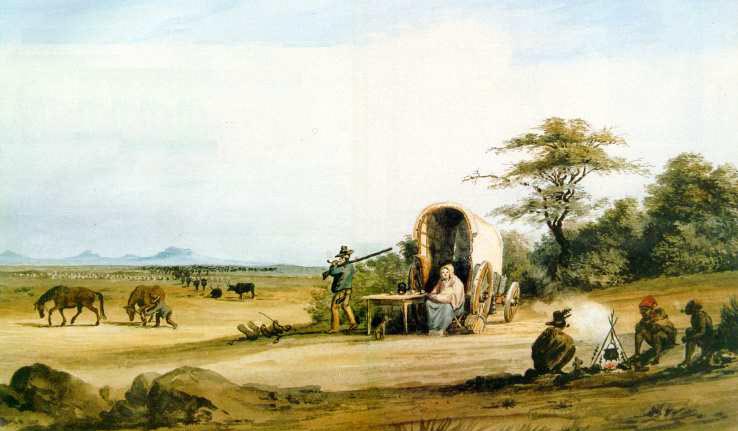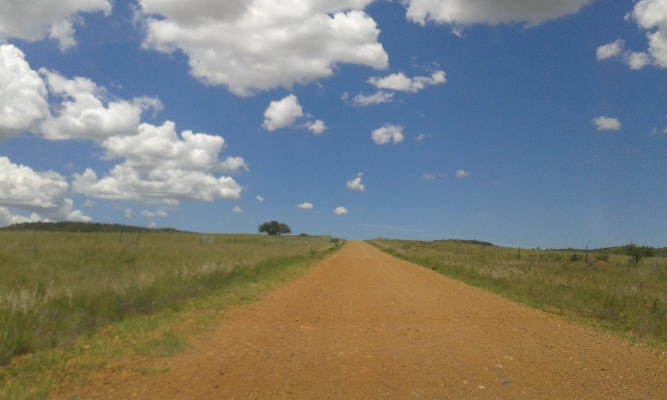THURSDAY, 5 APRIL 2018

The fact that the members of the Smit-Bornman family – my parents, my two sisters and I – have such a complicated relationship with money is most likely related to the fact that our ancestors were mainly livestock farmers for 250-300 years, and were still farming up to two generations ago, although with more than just cattle.
The difference between a livestock and a crop farmer is a difference not only in lifestyle but in farming technique. The crop farmer needs to know when, what and where to plant, and when to harvest, and will think twice before giving up good land and moving away just because pasture for sheep or cattle is getting harder to find. There’s also a difference in labour management – amongst other things, the crop farmer needs more hands on the farm. Another factor is entrepreneurial spirit – the crop farmer needs to know what fruit and vegetables are in demand, how big the demand is and at what price he has to sell his produce to at least break even.
All of these differences are relevant to understanding my own family’s relationship with money because, as I pointed out, my ancestors were steeped in the culture, lifestyle and profession of cattle farming for centuries.
As far as I could determine, not one of my grandparents knew much about the four things that one should do to become wealthy in the city: selling and marketing, extracting value from the labour of people who are more or less your social equals, advertising your service or product, and re-investing your profits so that your wealth increases – with a little luck. My own parents were more or less fresh from the farm, and they had to get to know the city on their own. They had to observe what other townies were doing, and eventually learned to survive in the city to an adequate degree.
But they also didn’t learn much about the things that make you financially independent. What they learned was that you gained a skill, and then made yourself useful to some company or institution, or to the state. And if you were fortunate, you got a “permanent position”, focused on your “career” for the next forty years, and in the meantime started a family in a middle-class suburb with beautifully mowed lawns and clean, quiet streets.
That is what my parents had learned, and that is what they taught me and my two sisters. Study hard, matriculate from high school, go to university, get a degree, make an impression on some company or institution, and continue the whole cycle.
Only problem is, this model doesn’t work well for everyone. Another thing: Very few people ever become financially independent by selling their time to someone else.
There is surely more than one road to the Promised Land, but knowing how to sell and market, how to extract value from the efforts of people who are at a similar social level than you, how to promote a service or product, and how to invest your profits in such a way that you get richer and richer with a little luck is definitely one way.
My grandparents taught my parents few, if any, of these urban skills, and in turn my parents taught us hardly any of this.

Of course, we have been, and are clever enough to master these things on our own. And if you work out soon enough that it is specifically those things that need to be mastered, and luck is at least a little on your side, you can whisper across the vast plains of the Eastern Cape, the Free State and the old Transvaal to you livestock farming ancestors: Don’t worry about me; I’m flourishing in the city. But if you take too long to master these skills and life starts chafing, you’ll be leading the kind of life in the city about which you’d rather not inform your humble forebears.
______________________